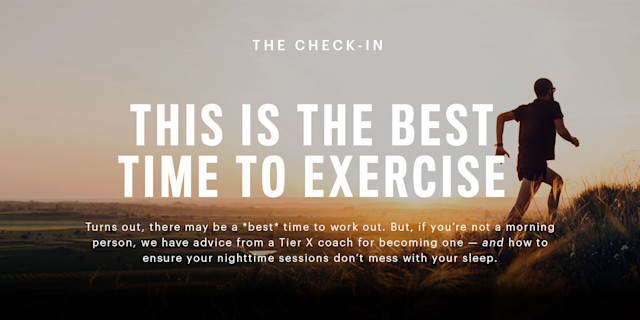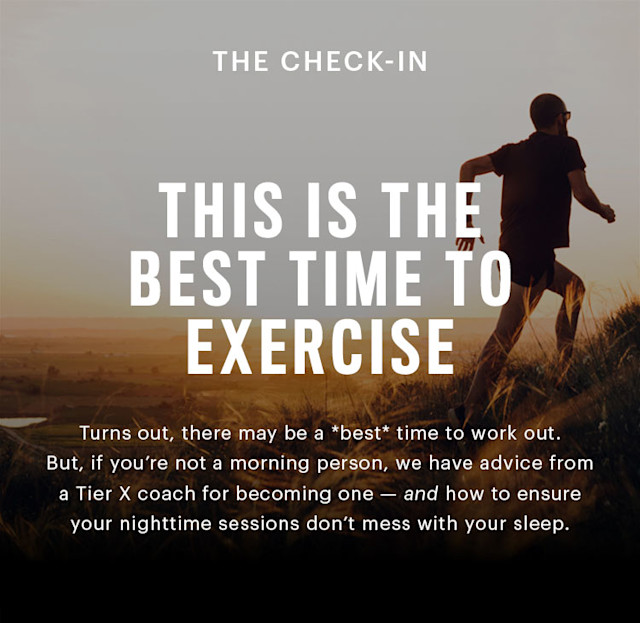

Exercise in the Morning — If You Can
Humans probably evolved to exercise in the morning: Our ancestors would wake up, try to find food (basically a workout), and then go about their day, says Michael Crandall, a Tier X coach at Hudson Yards in New York City. More scientifically speaking, research shows that cortisol (the stress hormone) spikes naturally in the morning. (You’ll get smaller peaks throughout the day, too, due to things like work stress.) Exercising in the morning helps that spike occur early, Crandall explains. If you work out at night, though, you spike cortisol before bed which fundamentally goes against good sleep hygiene, Crandall says. “Melatonin [the hormone that lets your body know its time for sleep] and cortisol typically have an inverse relationship.”
Start With a Coffee Walk
If you want to build up to HIIT workouts at 7:00 a.m., start with a walk to grab a coffee, Crandall advises. “You have to make yourself feel addicted to that time before trying to do a five-day-a-week workout program.”
FYI: A lunchtime session is a good second best, per Crandall. “Even mid- to late-afternoon, you can still come down off of your high well before bed,” he says. “While the sun's still up is probably a reasonable time to try to get your hard [routines] in.”
Hack Your Evening Workouts
If the only time you can feasibly exercise is in the evening, follow these tips from Crandall to ensure you still get solid rest:
- On the day of your workout, get outside in the morning. Taking in some sunlight can spike your cortisol in a similar way that exercise would.
- Keep it as low intensity as possible (Think: PURE Yoga Relax & Unwind Before Bed on Equinox+)
- Post-workout, focus on breathing through your nose. Nasal breathing can help you get back into a parasympathetic (rest and digest) state quickly.
- Stick to a calming wind-down routine like a warm shower and minimal screen time before bed.